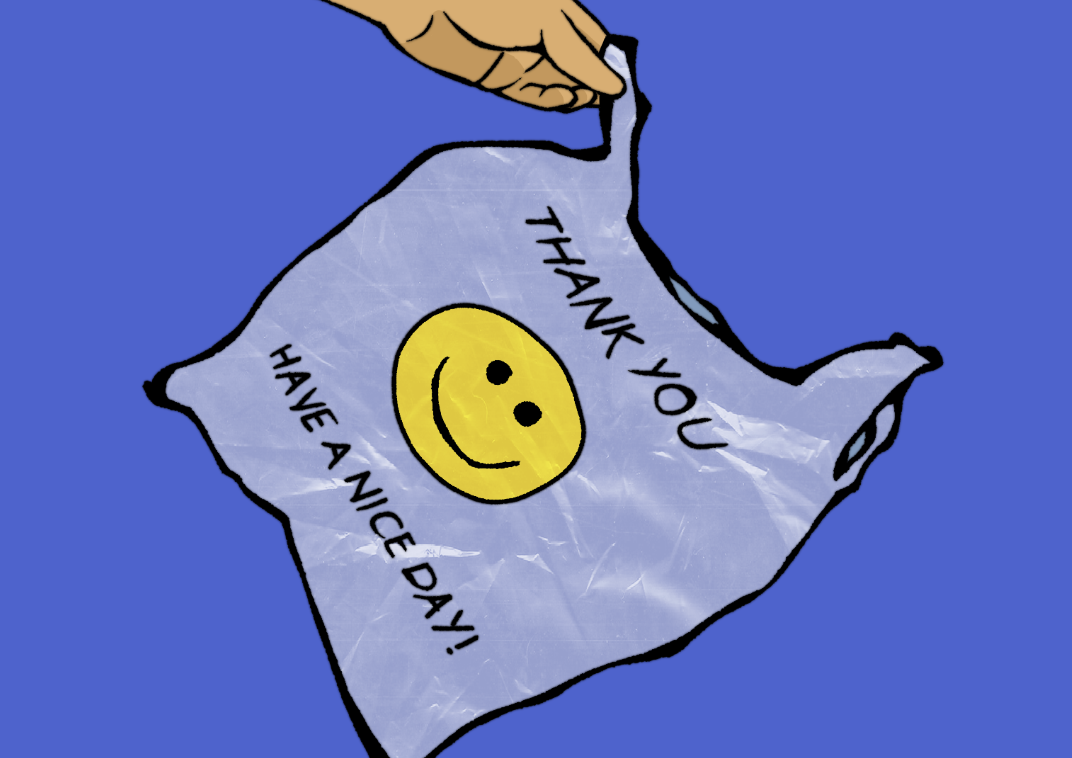It is no surprise that in the modern world, the disposal of plastic has become a huge environmental issue. Plastic is made of artificial polymers, making it harder to decompose in landfills. In light of this, many states have placed bans on plastic bags, replacing them with other types of bags to reduce the amount of plastic that ends up in landfills. The reality is, however, that the banning of plastic is not only unhealthy for the public but also for the environment, as the money used for replacing plastic could be utilized for more effective purposes.
Reusable bags, unlike plastic bags, can lead to illnesses that have the capacity to damage public health, possibly leading to health complications. Many reusable bags, unlike plastic bags, are made from absorbent materials, causing substances, such as the juices of raw meats from grocery runs, to be soaked into the bag, encouraging the growth of bacteria like E. coli. This bacteria can then cross-contaminate other products in the bag, making the items unsafe to consume. While these bacteria can be dealt with if the bag is cleaned properly, many people do not realize they should clean them at all because stores often do not inform them of this necessity. The University of Arizona conducted an experiment in which they compared the number of bacteria in used reusable bags and plastic bags; according to the study, 99% of the bacteria they found in their experiments were found in reusable bags. The issue worsens as in the experiment, the bags were also left in a trunk for 2 hours, and “within this time, the number of bacteria increased 10-fold when the temperature was 47oC inside the trunk.” The combination of food and hot temperatures found within cars makes the perfect breeding ground for bacteria, making the food even more hazardous to consume. While reusable bags may seem like the perfect solution to deal with the plastic problem, the reality is that without the correct care, they can cause even more issues.
In addition to being harmful to the public, banning plastic bags is just as harmful, if not more, to the environment, because the alternatives for them are simply not efficient enough. One of the most common replacements for plastic bags is paper bags, as they decompose much faster; however, according to the United States Environmental Protection Agency, “plastic bags use 40% less energy to produce and generate 80% less solid waste than paper,” meaning that making paper bags would use more fossil fuels, thereby causing more air pollution. Similarly, they create more solid waste, filling landfills more easily, canceling out the advantage that paper bags have over plastic. Other materials fare even worse: according to the Danish Environmental Protection Agency, it would take 7100 uses of a cotton bag to make up for the energy used to make it compared to the energy used to make a plastic bag. To put that into perspective, according to Statista.com, the average person goes grocery shopping 1.6 times a week; it would take 85 years to make up for the energy used to replace the plastic bag with a cotton bag. The simple fact of the matter is that the substitutes for plastic bags make just as many problems as they solve for the environment, making the banning of plastic a fruitless undertaking.
Finally, the money used for the alternatives to plastics could be used for more productive projects. These replacements are much more expensive than plastic bags, as according to the New York Times, a paper bag is 4 to 5 times more expensive than a plastic bag. However, this fivefold increase in the price barely makes up for itself because, as discussed before, these alternatives would create more problems. This money could be used for other efforts with fewer drawbacks, such as building facilities to recycle plastic, which have already proved themselves to be useful. According to Stanford University, “one ton of recycled plastic saves 5,774 kWh of energy, 16.3 barrels of oil, 98 million BTUs of energy, and 30 cubic yards of landfill space,” demonstrating the value of recycling for the environment, saving both fossil fuels and landfill space. One of the biggest problems that comes with recycling is the cost: there are many different types of plastic, each requiring its own method of recycling, making it expensive for cities to pursue these projects. According to National Geographic, “public investment in recycling systems, moreover, is integral to their long-term sustainability and success.” For these recycling plants to go up, they require money; however, spending money on ineffective solutions takes away money from projects such as these, that are worthwhile and do not have major drawbacks. It is up to the government to understand that by working with plastic, not against it, they can deal with the problem right now.
Banning plastic bags is simply an inefficient solution that will get in the way of actual, working solutions. The cost of alternatives right now is simply too high to support, requiring major spending and commitment to see minimal returns. Recycling plastic is an action that has already shown its value, making it a worthwhile investment. The public needs to unite to show the government that barring plastic bags will only get in the way of creating a cleaner, healthier planet.






































